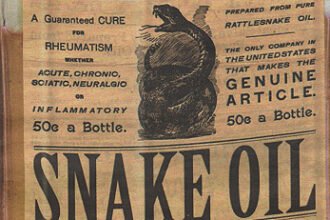The United States health care system proves that cost doesn’t always equate to quality. The U.S. health care industry is the most expensive in the world, but it underperforms on most dimensions in comparison to other advanced countries. Decreasing the drastic amounts of overspending is one important step to put the U.S.
The United States health care system proves that cost doesn’t always equate to quality. The U.S. health care industry is the most expensive in the world, but it underperforms on most dimensions in comparison to other advanced countries. Decreasing the drastic amounts of overspending is one important step to put the U.S. health care industry on better footing, and perhaps the simplest way to slim down the $3.8 trillion spent on health care is by addressing patients’ poor prescription drug adherence.
Encouraging people to create positive medication adherence habits is important for the patient and for society itself, because failing to do so is dangerous and costly. And these expensive choices add up fast.
In 2014, pharmaceuticals spending in the United States rose to nearly $374 billion, and responsible medication usage can eliminate $105 billion annually in avoidable health care costs. When people— especially chronically ill patients—fail to take their medicine properly they create unnecessary strain on the health care system. Poor medication compliance leads to an estimated 10 to 25 percent of nursing home and hospital admissions, 30 to 50 percent of treatment failures, and an annual 125,000 preventable deaths.
However, studies show that we can curb this medication misuse by repackaging prescription drugs into blister packs and other unit-of-use methods.
It’s easy to understand that swallowing a few pills each day is a lot less expensive, less painful and less time consuming than extra doctor visits, surgeries and hospital bills. But it’s also easy to not do what we know is the best course of action. That’s why chronic use of self-administered medication has an average non-adherence rate of 50 percent. And the leading causes of that non-adherence are not surprising to anybody who has tried to maintain a treatment schedule. The biggest reason is forgetfulness, which can lead to missed medications, under-dosage, over-dosage and erratic dosage. Otherwise, patients might not understand the illness, or they may play with their dosage or medications to “test out” the efficacy of certain medications. This often includes cutting back or eliminating doses without letting their doctors know.
But those adherence numbers can improve up to nearly 97 percent adherence in some situations when the person’s medications were packaged in blister packs, which designate which pills to take and when to take them. They’re often interactive and include calendars to make it easier for patients to know how much medicine is left, if they’ve taken the drug that day which avoids over-dosing.
This is most prevalent in the elderly, children and adolescents and can have disastrous health and economic effects that last a lifetime. About two-thirds of kids with chronic illnesses are on prescribed medications, half of which fail to properly maintain their treatment, according to a study published in September 2013 in the journal Pediatrics.
If something relatively simple, like giving patients medications in different packaging, can change how efficient people are when adhering to their treatment regiment, it’s an industry responsibility to do this. A new presentation and packaging method will save money, lives and resources. How can we not pursue this change?








